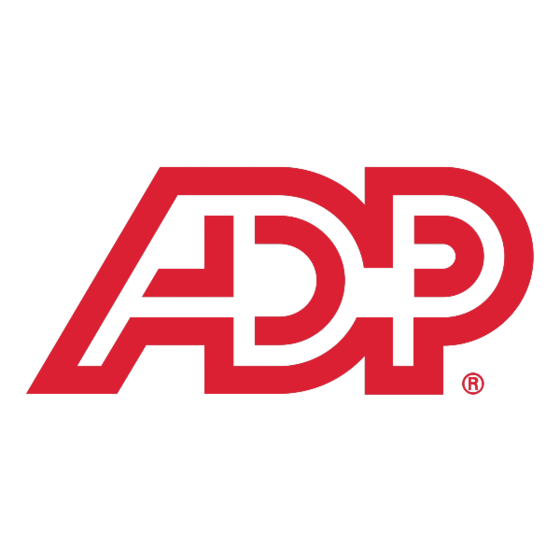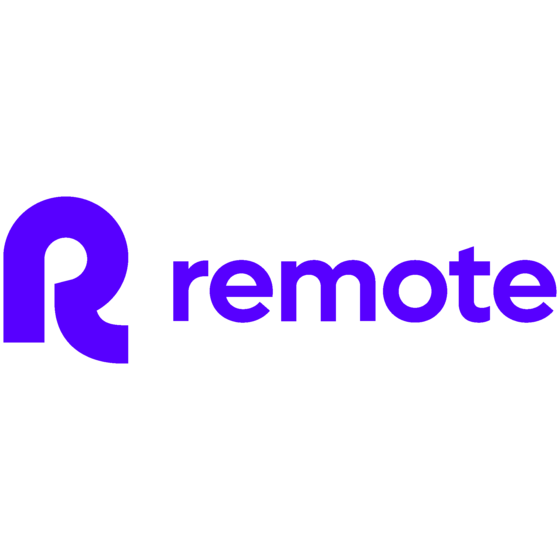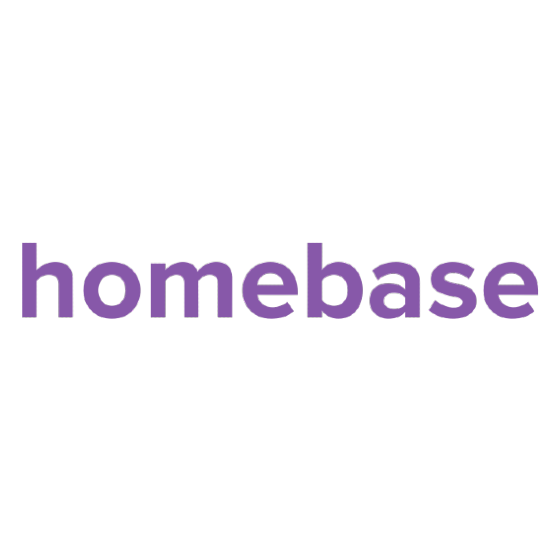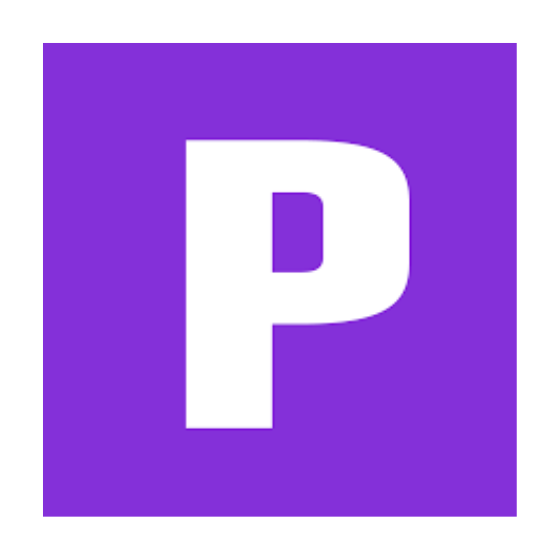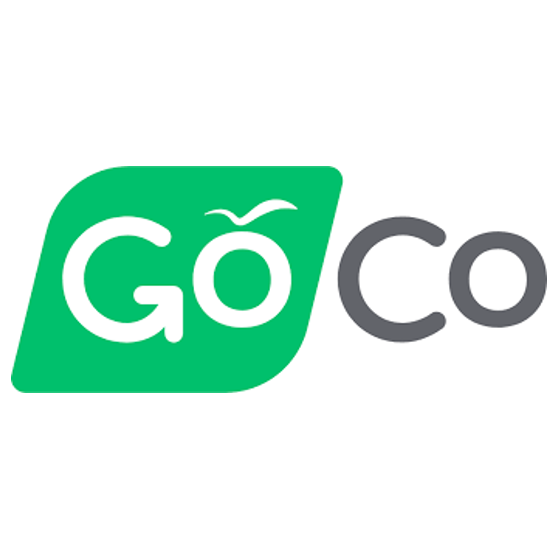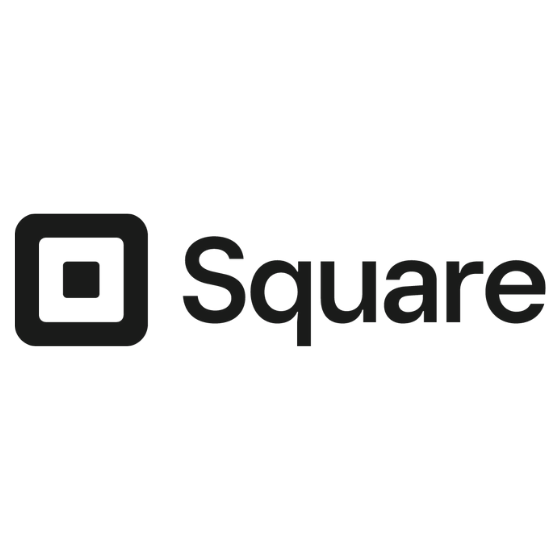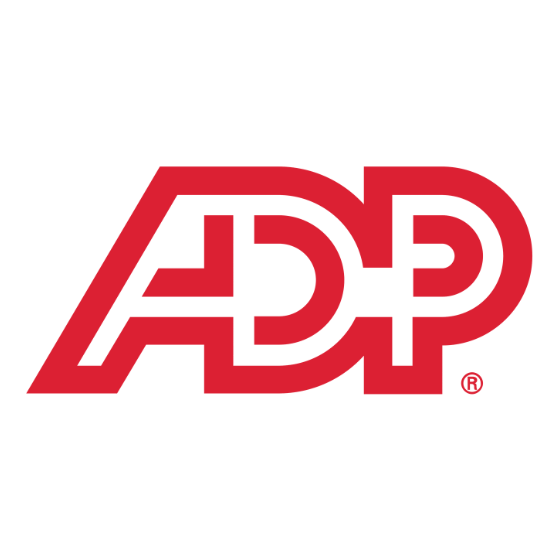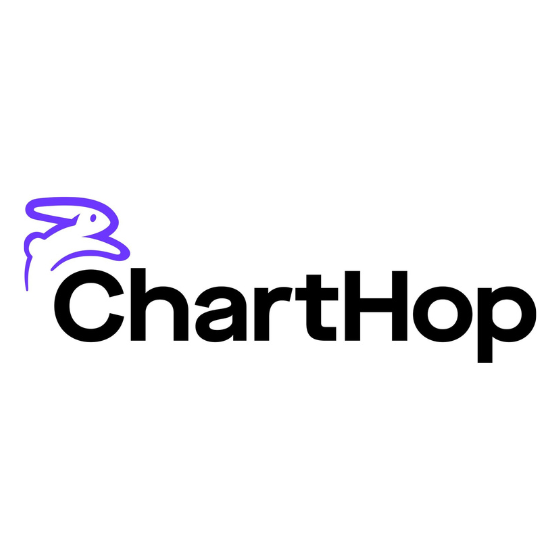10 Best Payroll Software for Startups Shortlist
Here's my pick of the 10 best software from the 20 tools reviewed.
Talk through what you’re looking for. Get a custom shortlist based on your needs. No fees.
The best payroll software for startups helps you automate payments, stay compliant with tax regulations, and scale your workforce without drowning in spreadsheets or paperwork. If you're an HR professional at a growing company, chances are you're either frustrated with a system that can't keep up, or still stuck handling payroll manually.
Whether it's calculating contractor payouts, staying on top of tax filings, or onboarding new hires, startup-friendly payroll software removes the guesswork and gives you back valuable time. It simplifies complex processes like tracking hours, setting up benefits deductions, and issuing accurate, on-time payments without needing a full in-house finance team.
I’ve spent years reviewing HR and payroll systems, helping companies like yours move from clunky tools (or no tools at all) to efficient platforms that just work. In this guide, I’ll walk you through the best options for startups, based on usability, features, integrations, scalability, and support—so you can make the right choice faster.
Why Trust Our HR Software Reviews
We’ve been testing and reviewing HR software since 2019. As HR experts ourselves, we know how critical and difficult it is to make the right decision when selecting software. We invest in deep research to help our audience make better software purchasing decisions.
We’ve tested more than 2,000 tools for different HR management use cases and written over 1,000 comprehensive software reviews. Learn how we stay transparent, and take a look at our software review methodology.
Best Payroll Software for Startups: Comparison Chart
This comparison chart summarizes pricing, trial, and demo details for my top payroll software selections for startups and small businesses to help you find the best software for your budget and business needs.
| Tool | Best For | Trial Info | Price | ||
|---|---|---|---|---|---|
| 1 | Best for global payroll and compliance | Free trial + demo available | From $29/month | Website | |
| 2 | Best for automated tax filings | 90-day free trial | Pricing upon request | Website | |
| 3 | Best for global payroll with in-house local support | Free trial available | From $29/user/month | Website | |
| 4 | Best for paying part-time or hourly employees | Free plan available | From $20/location/month | Website | |
| 5 | Best for user-friendliness and 24/7 support | Free demo available | From $25 - $199/user/month | Website | |
| 6 | Best for small businesses needing easy-to-use payroll software | 30-day free trial | From $4/employee/month + $17/month base fee | Website | |
| 7 | Best payroll software for modular pricing | Free demo available | Pricing upon request | Website | |
| 8 | Best for integrating payroll with POS systems | Not available | From $6/user/month + $35/month base fee | Website | |
| 9 | Best for international scaling | Free demo available | From $19/employee/month | Website | |
| 10 | Best for small businesses seeking payroll and tax services | Free demo available | Pricing upon request | Website |
-

ChartHop
Visit WebsiteThis is an aggregated rating for this tool including ratings from Crozdesk users and ratings from other sites.4.3 -

Willo
Visit WebsiteThis is an aggregated rating for this tool including ratings from Crozdesk users and ratings from other sites.4.8 -

Boon
Visit WebsiteThis is an aggregated rating for this tool including ratings from Crozdesk users and ratings from other sites.4.7
Reviews of the Best Payroll Software for Startups
Discover the strengths and weaknesses of leading payroll software for startups. Gain insights into their features and ideal scenarios for use through my comprehensive evaluations.
Deel offers a comprehensive payroll software solution for businesses of all sizes, including startups, allowing them to manage their global team's payroll, compliance, and HR needs in over 150 countries.
Why I picked Deel: What makes Deel different is its extensive coverage and features tailored for global operations. It provides in-house visa support, compliant contracts with a single click, and country-specific benefits, which are essential for startups hiring internationally.
Standout features & integrations:
Features include international payroll, tax support, payslips, and automated contractor invoicing. It also offers robust compliance features to keep employers aligned with local laws. Furthermore, Deel's HRIS feature allows users to manage their entire global team in one platform. This includes managing people's data, time off, expenses, reporting, and performance.
Deel integrates with Hibon, NetSuite, Okta, Ashby, BambooHR, Expensify, Greenhouse, OneLogin, Quickbooks, Xero, Workday, and Workable. Its Open API also supports custom integrations.
Pros and cons
Pros:
- Automated invoicing capabilities
- Compliance with local laws
- Supports global hiring
Cons:
- No mobile app
- Limited customizations
RUN by ADP is a payroll and HR platform tailored for small businesses, offering features such as payroll processing, tax management, HR management, and time and attendance tracking.
Why I picked RUN by ADP: RUN by ADP is an excellent payroll software choice for startups due to its comprehensive suite of features tailored specifically for small businesses. It offers an efficient payroll management system, which automates payroll processing and tax filing.
In addition, RUN by ADP offers a user-friendly mobile app that allows business owners to manage payroll on the go, providing flexibility and convenience that is crucial for the dynamic environment of a startup.
Standout features & integrations:
Features include robust compliance and HR support, direct deposit, an employee self-service portal, time and attendance tracking, garnishment payment services, new hire reporting, retirement plan services, workers' compensation management, payroll and tax reports, and mobile app access.
Integrations include Quickbooks, Wave, Xero, ClockShark, Points North, TruSaic, Compy, Wex, Synerion, JazzHR, 7Shifts, Snappy Gifts, Absorb LMS, SmartRecruiters, and hundreds more.
Pros and cons
Pros:
- Wide range of integrations available
- Good mobile app
- Employee self-service portal
Cons:
- Many HR functions are only available on higher-tier plans
- Setup can be complex
Remote is a global HR management platform that offers a range of solutions for hiring, managing, and paying global teams, including Employer of Record services, contractor management, payroll management, and HR management.
Why I picked Remote: I chose Remote for its features that simplify global payroll management and ensure compliance across various jurisdictions. Remote's payroll system offers seamless payment processing in local currencies, eliminating the hassle of manual conversions. This efficiency is critical for startups that need to focus on growth.
Remote's in-house local payroll support also provides expert guidance to help businesses remain compliant.
Standout features & integrations:
Features include Employer of Record (EOR), global benefits, watchtower HR compliance, time and attendance tracker, contractor invoicing and management, payroll and expense management, employee self-service, global hiring planner, remote job boards, and employee immigration and relocation support.
Remote integrates with BambooHR, Greenhouse, Gusto Global, HiBob, Personio, Sequoia, Easop, Zelt, Xero, Vanta, Gifted, and Workday.
Pros and cons
Pros:
- Maintains regulatory compliance for global payroll
- Employer of Record services
- Clear breakdowns of employee costs
Cons:
- Initial learning curve when getting started
- Not available in all countries
Homebase is a cloud-based employee management system designed to help small businesses streamline HR tasks such as time tracking, scheduling, and payroll.
Why I picked Homebase: I selected Homebase because it stands out for its focus on small and medium-sized businesses with hourly employees, like clinics, retail stores, restaurants, and salons. Its user-friendly interface and affordability make it a great choice for small businesses that are looking to streamline their HR tasks without breaking the bank.
Standout features & integrations:
Homebase features include automated tax filings, direct deposit, and time tracking. These features are designed to ensure that payroll is processed efficiently and in compliance with relevant laws and regulations.
Homebase integrates with popular tools such as QuickBooks, Gusto, Square, Clover, Shopify, Xero, ADP, Zapier, Lightspeed, and Revel Systems.
Pros and cons
Pros:
- Time tracking for accurate payroll
- Offers direct deposit into bank accounts or printable checks
- Automated payroll and tax processes
Cons:
- No details on customization for specific business needs
- Payroll functions are only available as an add-on
RemoFirst is a comprehensive global employment services tool that offers solutions for managing remote talent, including employer of record services, global payroll, international contractors, visas and work permits, and workforce management.
Why I picked RemoFirst: RemoFirst simplifies the complexities of international payroll by providing a fully managed solution that ensures timely and accurate payments to employees across the globe. Its platform supports multiple currencies and complies with local tax regulations.
Furthermore, RemoFirst’s automated payroll processing minimizes administrative workload, and includes 24/7 support, making it easy for startups to manage payroll without requiring extensive HR expertise.
Standout features & integrations:
Features include Employer of Record (EOR), benefits management, compliance support, dashboards and analytics, and an employee cost calculator that allows businesses to determine the exact cost of employing someone in a specific country with a given salary.
Integrations include ADP.
Pros and cons
Pros:
- Responsive support team
- Ensures compliance with local labor laws
- Handles payroll in multiple countries
Cons:
- Lacks extensive integrations
- No mobile app available
Best for small businesses needing easy-to-use payroll software
Patriot Payroll is an online payroll service provider that helps small businesses grow on a budget. Their software includes free payroll setup, free 2-day direct deposits, and free USA-based customer support.
Why I picked Patriot: I chose Patriot for this list because of its focus on small businesses. I believe Patriot is best for small businesses because it offers a balance of essential features and simplicity, ensuring that even those with minimal payroll experience can manage their processes effectively.
It's also very cost-effective compared to other payroll systems, making it an ideal choice for startups that need to manage payroll efficiently without incurring high costs.
Standout features & integrations:
Features include a payroll process, free payroll setup, unlimited payrolls, on-the-fly pay rate changes, and a free employee portal. Additionally, it offers time-off accruals, free direct deposit, and the ability to handle multiple pay rates and track reported tips.
For startups that are just beginning to build their tech stack, Patriot offers additional products to cover HR, Accounting, and Time & Attendance as well.
Integrations include QuickBooks Desktop, QuickBooks Online, GoCo, Plaid, Workforce.com, and WorkforceHub Time & Attendance.
Pros and cons
Pros:
- User-friendly interface suitable for small business owners
- Free payroll setup and expert support
- Flexible payroll features including free direct deposit and multiple pay rates
Cons:
- Additional fees for state tax filing services
- Limited to businesses with employees working in the USA
GoCo is a comprehensive HR platform that integrates payroll, benefits, and compliance. It's best for businesses seeking a modern HR experience with payroll capabilities.
Why I picked GoCo: I selected GoCo for its modular design, which integrates payroll with various other HR functions. While many HR systems are modular, GoCo takes things one step further in the flexible configuration of their software and pricing structure, which is something not all SaaS vendors offer. GoCo is truly modular, meaning you can pick and choose the modules you actually need rather than a one-size-fits-all approach.
Standout features & integrations:
GoCo features include payroll processing, benefits management, and compliance tracking. It provides employees with digital access to paystubs and simplifies payroll preparation for employers.
GoCo integrates with Gusto, QuickBooks, Slack, Google Workspace, Indeed, ADP, Workday, Salesforce, Zapier, and Xero.
Pros and cons
Pros:
- Flexible and customizable pricing options
- Modern interface and user experience
- Integrates payroll with other HR functions
Cons:
- Advanced features and support may incur extra charges
- Potential limitations in integrating with existing systems
Square Payroll facilitates payroll management for small businesses. It excels for businesses that need to integrate payroll functions with their POS systems.
Why I picked Square Payroll: I selected Square Payroll because it stands out for its integration capabilities with POS systems, which is crucial for small businesses that use Square's sales solutions. This integration streamlines the payroll process by connecting directly with Square's POS, simplifying the management of sales and employee payments.
Standout features & integrations:
Square Payroll features include tax automation, time tracking, and multi-state payroll management. It caters to both W-2 employees and 1099 independent contractors, offering direct deposit and check payment options.
The software is particularly compatible with the Square ecosystem, enhancing the payroll experience for users of Square Team Management and other Square services.
Square Payroll integrates with QuickBooks Online, Square POS, Square Team App, Cash App, and various HR and benefits add-ons.
Pros and cons
Pros:
- Tax filing processes are automated
- Integration with Square's suite of products
- Clear pricing without additional fees
Cons:
- Certain HR features require additional purchases
- Extra charges for physical tax form delivery
Plane provides comprehensive support for managing global payroll for international team members. In addition, they also offer support with onboarding new hires, offering health insurance benefits in multiple countries, plus employer of record (EOR) services for legally hiring employees abroad without requiring a legal entity.
Why I picked Plane: I chose Plane for this list because of its unique ability to support startups with international expansion. Its ability to manage payroll for W2 and global team members using one system makes it stand out. I believe Plane is best for startups scaling globally because it offers EOR services that help startups to hire abroad without setting up local entities, and supports tax compliance and immigration processes.
Standout features & integrations:
Plane features include automatic tax calculation, seamless integration with accounting software, real-time payroll processing, compliance management, customizable payroll reports, employee self-service portal, and support for multiple payment methods.
Plane integrates with QuickBooks, Xero, Gusto, Slack, TSheets, Asana, Stripe, Salesforce, Google Workspace, and Microsoft Teams.
Pros and cons
Pros:
- High ratings for usability and support
- Employer of record services for hiring in 100+ countries without local entities
- Comprehensive payroll and HR solution for global teams
Cons:
- Detailed information on compliance support in various countries is not available
- The list of native integrations is not provided
ADP streamlines payroll and tax services for small businesses. It's ideal for those requiring a straightforward and precise payroll and tax solution.
Why I picked ADP: I selected ADP for its established reliability and comprehensive services tailored to small businesses. It distinguishes itself by simplifying payroll tasks and ensuring tax compliance. I judge ADP to be best for small businesses due to its combination of accessible technology and expert support, which guarantees payroll precision and adherence to tax regulations.
Standout features & integrations:
ADP features include automatic tax calculations and payroll tax filings, and an employee self-service portal. It features intelligent alerts for potential payroll issues and specialized support for complex legal and tax matters.
ADP integrates with QuickBooks, Xero, Wave, Workday, Concur, Salesforce, Microsoft Azure, Google Workspace, TSheets, and Slack.
Pros and cons
Pros:
- Round-the-clock expert support
- Intelligent alerts for error prevention
- Comprehensive payroll and tax filing services
Cons:
- Additional costs for certain integrations and features may apply
- Lack of transparent pricing on the website
Other Payroll Software for Startups to Consider
Below is a list of additional payroll software for startups which I shortlisted, but didn’t make it into my top 10 list, but are still worth a closer look:
- Sage for Small Business
For combined payroll, accounting, and basic HR tools
- Paychex
For startups seeking comprehensive coverage and all-in-one technology
- Justworks Payroll
For small teams needing an all-in-one HR platform
- Rippling
For running payroll within minutes
- Papaya Global
For AI-driven payroll and payments
- Paycor
For automated wage and deduction calculations
- Trinet
For startups requiring comprehensive HR solutions
- OnPay
For startups seeking full-service payroll
- Humi
For HR management features
- Gusto
For startups needing simple, automated payroll
Related HR Software Reviews
If you still haven't found what you're looking for here, check out these other related tools that we've tested and evaluated:
- HR Software
- Payroll Software
- Recruiting Software
- Employer of Record Services
- Applicant Tracking Systems
- Workforce Management Software
Selection Criteria for Payroll Software for Startups
Choosing the right payroll software for a startup means finding tools that actually solve real problems—like saving time, staying compliant, and growing without adding overhead. That’s why I focused on platforms that are easy to use, packed with practical features, and built for the unique needs of new and scaling businesses.
As someone who’s tested and researched dozens of HR tools, I’ve developed selection criteria based on hands-on experience and what really works in fast-paced startup environments.
Here's a summary of the selection criteria I used for this list:
Core Payroll Software Functionalities (25% of total score): To be considered for inclusion in this list, each solution had to fulfill these common use cases first:
- Automated payroll processing
- Tax filing and compliance management
- Direct deposit into employee bank accounts
- Employee self-service portal for pay stubs and tax documents
- Reporting and analytics for financial oversight
Additional Standout Features (25% of total score): To help me find the best software out of numerous available options, I also kept a keen eye out for unique features, including the following:
- Innovative automation capabilities that reduce manual input
- Integration with other HR and accounting systems
- Customizable payroll workflows tailored to startup needs
- Advanced security features to protect sensitive data
- Compliance monitoring features to stay updated with changing tax laws
Usability (10% of total score): To evaluate the usability of each system, I considered the following:
- Intuitive navigation and clear layout
- Responsive design for mobile and tablet use
- Minimal learning curve for new users
- Visual dashboards that present data clearly
- A mobile app for Android and iOS devices
Onboarding (10% of total score): To get a sense of each software provider's customer onboarding process, I considered the following factors:
- Comprehensive training materials such as videos and templates
- Interactive product tours and chatbots for immediate assistance
- Webinars and live sessions for in-depth learning
- A clear roadmap for data migration and setup
Customer Support (10% of total score): To evaluate the level of customer support each vendor offered, I considered the following:
- Availability of support channels (phone, email, live chat)
- Responsiveness and resolution times
- Access to a knowledge base or FAQs
- Proactive support and regular updates
Value for Price (10% of total score): To gauge the value of each software, I considered the following factors:
- Transparent pricing without hidden fees
- Flexible plans that scale with business growth
- Cost comparison with similar products in the market
- Free trials or demos to evaluate the product before purchase
Customer Reviews (10% of total score): Evaluating customer reviews is the final element of my selection process, which helps me understand how well a product performs in the hands of real users. Here are the factors I considered:
- Overall satisfaction ratings
- Frequency of positive versus negative feedback
- Specific praises or criticisms that recur across reviews
- User testimonials on the impact of the product on their business operations
Using this assessment framework helped me identify the software that goes beyond basic requirements to offer additional value through unique features, intuitive usability, smooth onboarding, effective support, and overall value for price.
How to Choose Payroll Software for Startups
As you work through your unique software selection process, keep the following points in mind:
- Cost Efficiency: Startups must manage their finances carefully, and payroll software is no exception. Look for payroll providers that offer transparent pricing without hidden fees. For instance, a startup with a tight budget might benefit from a payroll system that has a flat monthly fee rather than per-employee pricing, as it allows for better cost predictability as the company grows.
- Scalability: As your startup grows, your payroll needs will evolve. Choose software that can easily scale with your business, avoiding the need for a costly and time-consuming switch later on. For example, a startup planning to double its workforce in a year should prioritize a payroll system that can handle an increasing number of employee profiles and complex compensation structures.
- Compliance Management: Payroll software should help ensure that you're following all relevant tax laws and regulations. This is crucial for startups that may not have a dedicated HR department. A payroll system that automatically updates to comply with the latest tax rates and regulations can save a startup from costly legal penalties.
- Integration Capabilities: The ability to integrate with other systems, such as HR and accounting software, is essential. This ensures data consistency and reduces manual entry errors. A startup using a popular accounting software would benefit from a payroll system that integrates with it, streamlining financial management.
- User-Friendly Interface: Startups often have employees who wear multiple hats, and not all may be tech-savvy. A payroll system with an intuitive interface minimizes training time and errors. For instance, a startup with a small team can save time and reduce frustration by choosing software that is easy for all team members to use, regardless of their technical background.
Trends in Payroll Software for Startups in 2025
Payroll software is always evolving. Here are several of the most recent trends affecting payroll software in 2025:
- Integration with Remote Work Platforms: Payroll systems are increasingly integrating with remote work platforms. This allows for automatic tracking of hours worked across time zones. It's important for startups with a global, remote workforce.
- AI for Tax Compliance: Artificial intelligence (AI) is being used to navigate complex tax regulations. AI can predict tax obligations and suggest optimizations. This is crucial for startups aiming to minimize errors and penalties.
- Real-Time Payroll Processing: Real-time payroll processing is becoming more common. It enables immediate payment to employees after completing work. This trend is significant for attracting and retaining talent who value instant compensation.
- Employee Financial Wellness Tools: Payroll software now often includes tools for employee financial wellness. These tools help employees manage earnings, savings, and investments. It's interesting as it extends payroll software's role beyond mere transaction processing.
- Decentralized Payroll Systems: Blockchain technology is fostering decentralized payroll systems. These systems offer increased security and transparency in transactions. This is particularly relevant for startups that prioritize data security and innovation.
These trends indicate a dynamic shift in how startups will manage payroll in 2025.
What is Payroll Software for Startups?
Payroll software for startups is a digital tool that automates employee payments, tax calculations, and payroll compliance for early-stage companies. It’s used by HR teams, founders, and finance leads to reduce errors, save time, and stay compliant without needing a full in-house payroll department.
Designed for growing businesses, this software helps startups handle tasks like calculating wages, managing benefits deductions, filing payroll taxes, and issuing accurate, on-time paychecks.
Features of Payroll Software for Startups
Startup payroll can get complicated fast, but the right software makes it simple, accurate, and scalable. As you compare tools, focus on features that support compliance, streamline processes, and grow with your team.
Here are the must-have features to keep on your radar:
- Automated Tax Calculations: This feature ensures that all payroll tax calculations are accurate and comply with current laws. Accurate tax calculations are vital to prevent costly penalties and maintain compliance with government regulations.
- Direct Deposit: Direct deposit allows for efficient and electronic payment to employees. This feature is essential for timely and secure compensation, eliminating the need for physical checks.
- Integration Capabilities: The ability to integrate with other systems streamlines data management. Integration with accounting software and time-tracking systems is important for maintaining accurate records and reducing manual data entry.
- Compliance Management: This feature helps startups stay on top of regulatory changes. Maintaining compliance with labor laws and tax regulations is critical for any business to avoid legal issues and fines.
- Self-Service Portal for Employees: A self-service portal empowers employees to view and manage their pay information. This feature is important for fostering transparency and reducing the administrative burden on HR staff.
- Payroll Reporting: Comprehensive reporting tools provide insights into payroll expenses. Detailed reports are important for financial planning and monitoring the overall health of the business.
- Time and Attendance Tracking: This feature simplifies the process of tracking work hours and calculating pay. Accurate tracking of time and attendance is crucial for ensuring employees are paid for all the hours they work.
- Multi-State Payroll: The ability to handle payroll in multiple states is essential for startups that have employees in different locations. This feature ensures compliance with various state tax laws and regulations.
- Scalability: Payroll software should grow with the business. Scalability is important to accommodate an increasing number of employees without the need to switch systems.
- Data Security: Protecting sensitive employee data is paramount. Strong data security measures are important to safeguard against breaches and maintain trust.
Selecting the right payroll software is a strategic decision that can significantly impact the efficiency and compliance of a startup's operations. By focusing on these key features, startups can ensure they choose a system that not only meets their current needs but also supports their growth trajectory.
Benefits of Payroll Software for Startups
Running payroll manually eats up time and leaves room for costly errors—two things startups can’t afford. Payroll software helps you stay compliant, pay your team accurately, and free up bandwidth to focus on growth.
Here are the key benefits for startups:
- Cost-Effectiveness: Using payroll software can significantly reduce the costs associated with manual payroll processing. By automating calculations and payments, startups can save on the expenses of hiring additional staff or outsourcing payroll management.
- Time Savings: Payroll software streamlines the payroll process, saving valuable time that can be redirected toward core business activities. This automation reduces the hours spent on payroll-related tasks, allowing startups to focus on growth and development.
- Accuracy and Compliance: Ensuring accuracy in payroll calculations and tax filings is simplified with payroll software. The software helps maintain compliance with tax laws and regulations, reducing the risk of costly errors and penalties.
- Enhanced Security: Payroll software typically includes robust security measures to protect sensitive financial data. This security is critical for startups, as it helps prevent unauthorized access and potential fraud.
- Scalability: As startups grow, payroll software can easily adapt to the changing needs of the business. This scalability ensures that the payroll system can handle an increasing number of employees without the need for significant changes or upgrades.
Payroll software offers startups a way to manage their payroll processes more efficiently, ensuring that they can maintain focus on their business goals while also keeping costs down and staying compliant with tax laws. As startups evolve, the scalability of payroll software allows for smooth transitions during periods of growth, making it a smart investment for the future.
Costs & Pricing for Payroll Software for Startups
Startup budgets are tight, so finding payroll software that balances cost with compliance and ease of use is key. Many providers offer flexible plans—often with core features like automated tax filing, direct deposit, and employee self-service—at price points designed for small teams.
Here’s a quick overview of typical pricing and what you can expect at each tier:
Plan Comparison Table for Payroll Software for Startups
| Plan Type | Average Price | Common Features |
| Free Option | Free (with limitations) | Payroll processing for limited employees, direct deposits to your bank, tax calculations |
| Basic Plan | $10 - $19 per month | Payroll setup, direct deposit, employee portal, workers’ comp integration, unlimited payroll runs |
| Standard Plan | $20 - $45 per month | Tax calculations and forms, vacation tracking, outside software integrations, HR functions |
| Full-Service Plan | $29.99 - $99 per month | Automated tax filings, timecard integration, employee benefits, same-day direct deposit |
| Premium Plan | $45 and up per month | Health benefits, 401(k) plans, 1099 e-file & pay, GPS job tracking, workers’ compensation features |
When selecting a payroll software plan, startups should consider the size of their workforce, the complexity of their payroll needs, and their budget. Solo entrepreneurs and very small businesses may benefit from exploring specialized payroll solutions for single employees. Either way, it's important to choose a plan that not only fits the current requirements but also scales with the growth of the business.
Payroll Software for Startups FAQs
Here are some answers to frequently asked questions you may have about payroll software and how it can help new businesses get up and running:
How does payroll software benefit a startup?
Payroll software can save time and reduce errors by automating payroll calculations and tax filings. It also helps ensure compliance with labor laws and tax regulations. Additionally, it can provide employees with self-service options for viewing pay stubs and managing their personal information, which can improve overall satisfaction.
Can payroll software integrate with other systems used by startups?
Yes, many payroll software solutions offer integration capabilities with other systems such as accounting software, time tracking tools, and human resources information systems (HRIS). This integration can help streamline business processes and improve data accuracy across different platforms.
Is it difficult to set up payroll software for a startup?
The complexity of setting up payroll software can vary depending on the solution chosen. However, many software providers offer user-friendly interfaces and step-by-step guides to facilitate the setup process. Some also provide customer support to assist with any challenges during the setup.
What kind of customer support can I expect from payroll software providers?
Customer support offerings can range from online resources, such as help articles and video tutorials, to live support through chat, email, or phone. Some providers may also offer dedicated account managers or support teams to help you run payroll initially, or assist with more complex issues during the initial setup phase.
How does payroll software handle taxes and compliance for startups?
Payroll software typically includes features that calculate and withhold the correct amount of federal and local taxes from employee paychecks. It can also handle year-end tax form preparation and filing, and stay updated with the latest tax rates and regulations to help ensure compliance.
Are there payroll software options for startups with remote or international teams?
Yes, there are payroll software options designed to accommodate startups with remote or international teams. These solutions can handle multiple tax jurisdictions, currencies, and compliance with international labor laws.
What's the best payroll software for starting a new restaurant?
When starting a new restaurant, it’s important to choose payroll software that’s easy to set up, affordable, and built to handle industry-specific needs—like tip reporting, multiple pay rates, and hourly scheduling. Look for tools that offer automated tax filing, direct deposit, and employee self-service portals to save time and reduce admin as you scale your team.
Many new restaurant owners also benefit from software that includes onboarding features, labor law compliance alerts, and integrations with time-tracking or POS systems. These features help reduce payroll errors, stay compliant from day one, and keep your payroll process running smoothly as your team and business grow.
To help you save some time searching for options, pop over to our list of the best restaurant payroll software next!
What’s Next?
To remain up to date on all the latest in people management, subscribe to our newsletter for leaders and managers. You'll receive insights and offerings tailored to leaders and HR professionals straight to your inbox.


